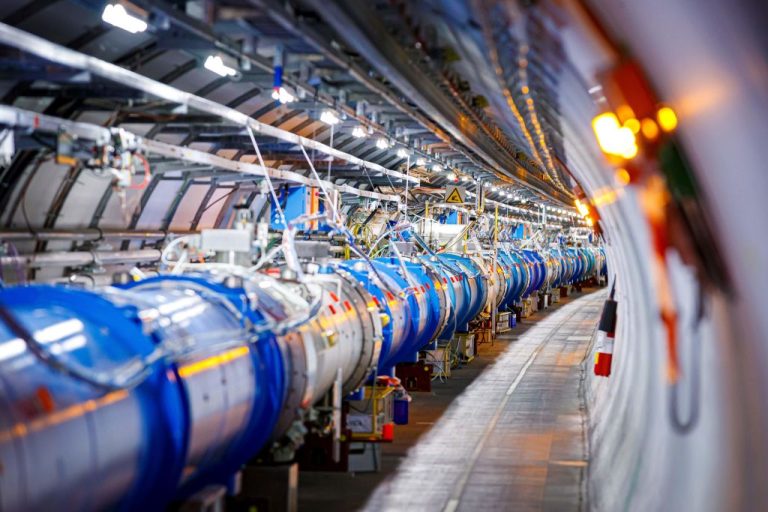Europe’s ongoing energy crisis, fuelled in part by the war in Ukraine, is forcing the world’s largest and most powerful particle accelerator, the Large Hadron Collider (LHC), to shut down weeks earlier than planned for its winter break and it’s expected the use of the LHC will be further reduced by 20 percent in 2023.
The European Organization for Nuclear Research, also known as CERN, uses the LHC to conduct research into a myriad of things including computer science and medicine. It is perhaps best known for being the tool used to discover the elusive Higgs Boson subatomic particle, thought to be vital in the formation of the universe.
The research however is power hungry. CERN uses an average of 1.3 terawatt hours of electricity per year, about as much energy a small city of 230,000 inhabitants would use in a year. The LHC alone uses about half of that energy.
Malika Meddahi, CERN’s deputy director for accelerators and technology, told Euronews Next, “This is both a lot and not much for a laboratory of our size and the societal benefits we offer.”
The Physics lab, which is located on the border between Switzerland and France, typically shuts down during the cold winter months when energy demand peaks to reduce the load on the network.
READ MORE:
- Hubble Telescope Reveals Huge Star Explosion in Stunning Detail
- ‘Blood Moon’ Total Eclipse Seen Across Much of Americas and Asia on Nov. 8
- Divers Find Challenger Space Shuttle Wreckage Off Florida Coast
Success
You are now signed up for our newsletter
Success
Check your email to complete sign up
As the French government calls on the nation to adopt “energy sobriety,” the physics lab has decided to take it to heart and slash its energy consumption this year and next.
The complex which houses the LHC will be shut down on November 28, a full two weeks earlier than what was originally planned and the use of the LHC will be further reduced by 20 percent in 2023.
The complex is poised to shut down with mere hours notice should the energy crisis deepen in France or Europe.
Numerous experiments will be directly impacted by the energy measures with some being delayed years due to the anticipated shut down.
“”Now for our Large Collider, it is true that there are two weeks of data that are lost. However, given the amount of data that is being accumulated now and will be accumulated until 2025 the impact is less significant,” Meddahi said.
CERN is not the only scientific complex facing turmoil navigating the energy crisis. The German Electron Synchrotron (DESY), located in Hamburg, which is home to the world’s most powerful X-ray laser, is also struggling with soaring energy costs.
The facility purchases energy up to three years in advance to manage sudden surges in price, however Wim Leemans, director of the accelerator division at DESY recently told Nature that “at current prices we are not able to afford it.”
Scientific facilities around the globe are starting to place more emphasis on energy costs, and where they source this energy, when considering their operations.
The newly inaugurated LUMI supercomputer, operating in Finland, sources all of its energy from renewable hydroelectric power and was designed to use the region’s low temperatures as a natural cooling system to reduce energy consumption.

















